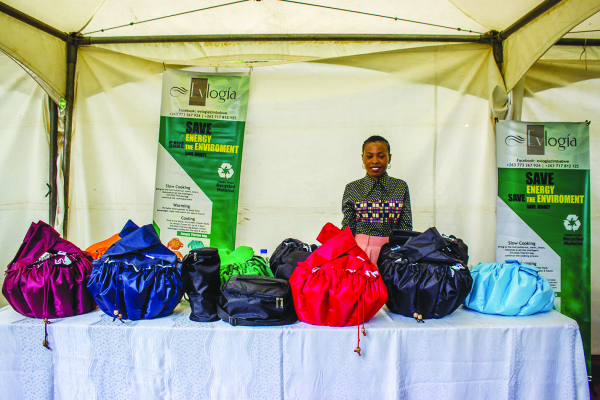
THE ever-increasing cost of using electricity for cooking has pushed people into devising new ways to tap into renewal energy, where people are managing energy use through other exciting means.
BY OBEY MANAYITI
One such a product that is penetrating Zimbabwe is the thermos bag, an environmental-friendly heat preserving bag with the capacity of saving electricity by over 25%.
The inside insulation is made up of recycled polystyrene.
In an interview recently, Jennifer Ropafadzo Gororo, who is championing the use of the thermos bag in Zimbabwe under Evlogia, said the bag can perform wonders and those that had an opportunity to use it have managed to remarkably save electricity.
She said at a time when electricity charges are increasingly becoming unbearable for many, the thermos bag becomes handy. “We manufacture slow cooking bags, a stand-alone bag that is insulated by polystyrene. The main aim of this bag is to regulate energy consumption in Zimbabwe,” she said.
“What prompted the manufacture of this bag is that the technology has been there, and I noticed it has been sitting around and people in Zimbabwe were not adopting the product, yet it is an effective way of reducing energy consumption.
“The bag has reduced the energy that people are using when cooking. Where a person can cook for normally three hours, with this bag they only have to cook for 30 minutes and continue cooking from the bag,” she added.
- Chamisa under fire over US$120K donation
- Mavhunga puts DeMbare into Chibuku quarterfinals
- Pension funds bet on Cabora Bassa oilfields
- Councils defy govt fire tender directive
Keep Reading
Gororo said the thermos bag is mainly used in the urban areas although they are planning to take their product to rural areas.
She said the beauty of the thermos bag is that it can be used while attending to other chores or even when travelling.
Speaking during the Gender and Energy Network in Zimbabwe launch, working in partnership with Hivos, Pamela Mhlanga, who is the director at Zimbabwe Women’s Resource Centre and Network, described the energy sector as one of the key areas in Zimbabwe which supports other sectors and hence access was vital.
She said there are a wide range of exciting innovations on sustainable energy products such as the thermos bags or hydro energy that have many stories.
She said women mostly bear the burden of the rising cost of energy, hence the need to find other exciting innovations.
“We have a challenge in accessing energy as a country particularly in rural areas and about 67% stay in rural areas. There is energy poverty in the country and people in rural areas are the hardest hit and women are at the fore. They are responsible for making sure that food is on the table so they are the ones who wake up early in the morning to go and look for firewood in the absence of energy access. It has become very important to us to really raise visibility of these issues with policymakers,” Mhlanga said.
She said it is important that women come in the sector as entrepreneurs. She said they must be given an opportunity to showcase their talent in that regard.
“We are not making progress at the pace at which we are expecting as women because it is still very much male-dominated. We are seeing women starting to come in the sector, but are facing some challenges in terms of financing or attitudes.
“The sector is seen as technical against the perception that women are less technical but we are saying there are a number of women who are skilled and have the aptitude to participate fully in the sector. We are pushing to make sure that more women venture into the sector.”
Legislator Fanny Chirisa said the involvement of women in coming up with alternative energy was encouraging. She said she moved a motion in Parliament that takes into account energy use and providing equal opportunities for all.
“This is very important for women because it reduces expenditure in the home and sometimes it reduces over-reliance on men.
Right now, people are complaining about prepaid electricity but they are not aware of this renewable energy.
“There are very few women in the decision-making on energy usage in the country. We also want women to embark on big projects such as solar cookers and hydro-energy, it’s an opportunity for them to showcase their talent,” she said.











